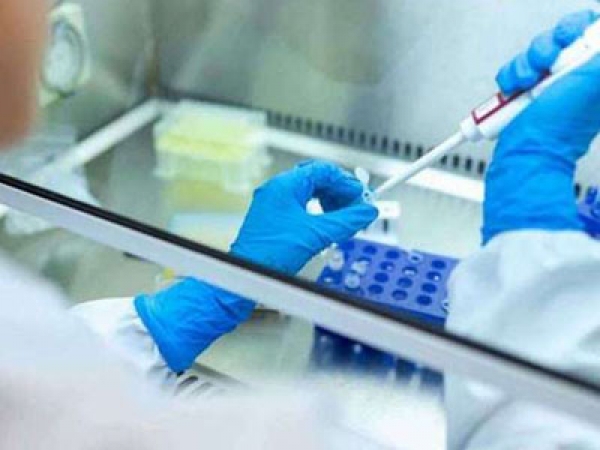KYOTO -- The new coronavirus can survive on the surface of human skin for around nine hours, some five times the period influenza can, a team of researchers in Japan has found.
The researchers, including epidemiology specialist Ryohei Hirose, a research associate at Kyoto Prefectural University of Medicine, additionally found that if the new coronavirus is exposed to alcohol-based disinfectant or ethanol of the same concentration, the virus is deactivated within 15 seconds.
As a result, Hirose is calling for people to thoroughly wash their hands or use alcohol-based disinfectant.
The group's findings were published in the online edition of U.S.-based science journal "Clinical Infectious Diseases" on Oct. 3.
According to the group, when the new coronavirus and influenza A were applied to the surface of skin, the new coronavirus lasted for around nine hours on it, while the flu strain remained for about 1.8 hours. Both the coronavirus and the flu remained active over the periods. To ensure that test subjects were not infected by the virus, researchers used skin samples from a person whose body was donated for a medical autopsy.
The team also applied the viruses to surfaces more conducive to their survival, such as on stainless steel, heat-resistant glass and plastic. It was found that the new coronavirus stayed active on them for between around 58 and 85 hours, whereas influenza lasted between about six and 11 hours. In all instances, the new coronavirus survived far longer.
Furthermore, the team also investigated the efficacy of ethanol when used as an alcohol-based disinfectant. They used ethanol at an 80% concentration, the same as in alcohol-based disinfectants available for sale, and found that it completely neutralized both the new coronavirus and influenza virus within 15 seconds, thereby demonstrating its effectiveness as a disinfectant.
Hirose said, "It appears that the relatively long time in which the new coronavirus can survive on human skin is among the background factors making it difficult to confirm infection routes. If it's staying active for nine hours, then it's difficult to prevent infections from touch. There's only so much that individual efforts can accomplish, so it's important not to blame people who do become infected."(Mainichi.jp)










